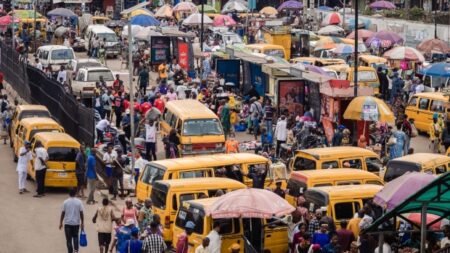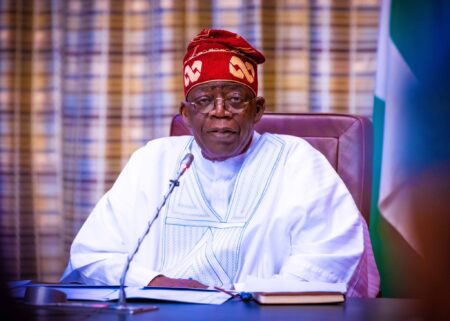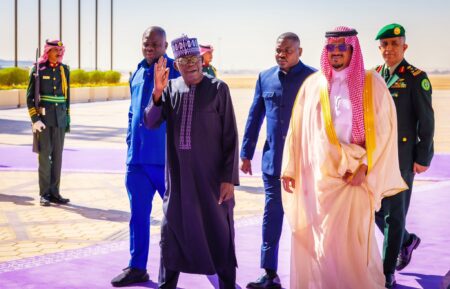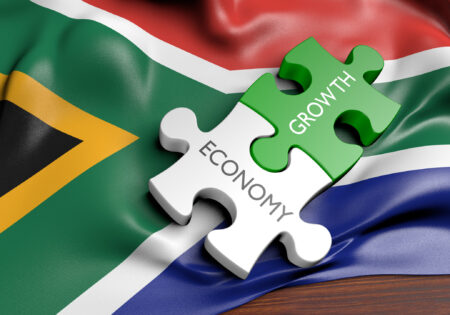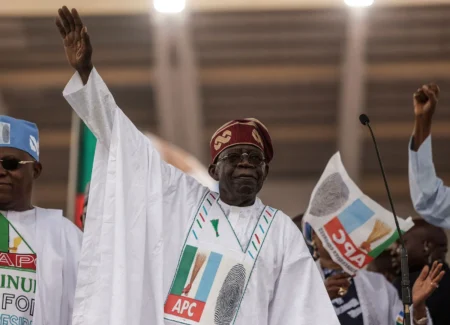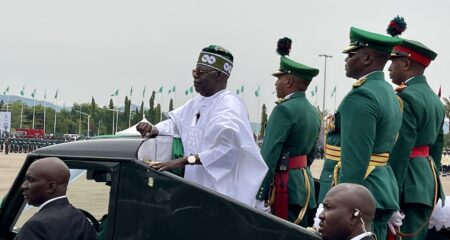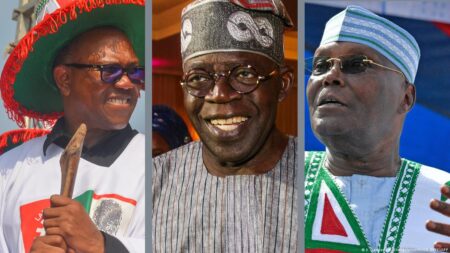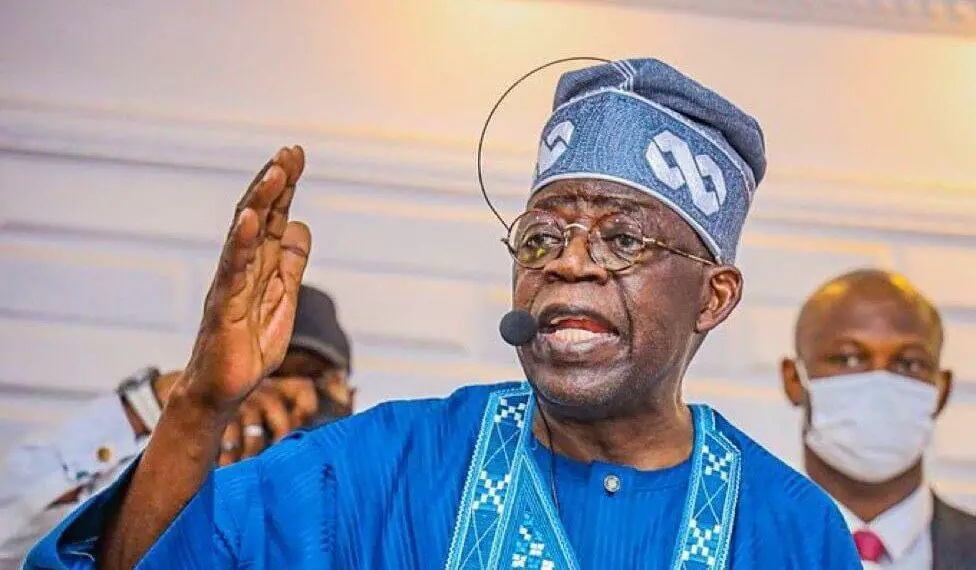- Africa’s new dawn: the rising role of digital and AI in agriculture
- Can Dangote Refinery Transform Africa Energy Ambition
- Gallup Survey: 80 per cent of Kenyan Workers Are Disengaged and Seek New Opportunities
- Madagascar Man Freed from 5KG Tumor After 15-Year Struggle
- How women in Africa are perceived and treated
- Sugar consumption in Kenya to Increase to 1.23 Million Tonnes
- Can Somalia and Turkey Oil deal Bring Change in Somaliland
- Remittances to Kenya dropped to $371.6 million in June, marking a six month low
Browsing: Bola Tinubu
- The construction took over 20 years and bears a processing capacity of 650,000 barrels per day 250,000 per day of gasoline and 100,000 of diesel.
- The Dangote oil refinery might halt the decades-long gasoline trade from Europe to Africa worth $17 billion each year.
Dangote Oil Refinery
Aliko Dangote, Nigeria’s and Africa’s wealthiest man ambition to foster energy reliance in his motherland and the region at large might be at risk. The giant oil refinery which is said to possess the potential to end decades-long gasoline trade from Europe to Africa worth $17 billion a year.
Concerns and tensions are high as a myriad of issues emerged before and since the $ 20 billion refinery came to life. According to various news reports, including the BBC and Reuters, the construction began in 2016 and started producing diesel and aviation fuel in January this year as petrol is expected to …
- Nigeria’s cost of living crisis has been the worst in decades, exacerbated by worsening food insecurity and record inflation.
- The lack of enough resources has led to insecurity in Nigeria as people fight for scarce resources and food.
- In response to Nigeria’s cost of living crisis, Tinubu announced a state of emergency in July and intends to begin grain distribution in the coming weeks.
Tinubu’s Reforms worsen Nigeria’s cost of living crisis
Nigeria, Africa’s largest economy, is grappling with the worst cost of living crisis in decades and a worsening food security situation. A significant portion of the population is experiencing extreme food insecurity. After assuming power in May 2023, Bola Tinubu’s administration adopted bold but unpopular reforms that further strained the already-battered economy.
Nigeria imports food and fuel and was buffeted by rising commodity prices due to a glim global economic situation in the last two years. President Tinubu …
- In a significant move by Moody’s Investors Service, Nigeria’s credit rating has been upgraded from stable to positive.
- The devaluation of the Naira and the reduction of the oil subsidy are seen as bold steps towards fiscal responsibility.
- The recent devaluation of the Naira, a significant move by President Bola Tinubu’s administration, carries profound implications for Nigeria’s credit rating.
In a significant move by Moody’s Investors Service, Nigeria’s credit rating has been upgraded from stable to positive. This shift, while not altering the country’s credit rating, marks a potential turning point for the nation’s fiscal and economic health. The December 9th upgrade reflects the Nigerian government’s concerted efforts to stabilize its economy, spearheaded by President Bola Tinubu, amid a complex tapestry of challenges and reforms.
Credit ratings, as determined by agencies like Moody’s, are pivotal in the global economic landscape. They are a barometer for a nation’s creditworthiness, impacting …
- The Nigeria-Saudi Business Council could see the Middle Eastern country fund several sectors of the West African economy.
- Through the council, the Kingdom of Saudi Arabia plans to replicate various investments made in Pakistan, Indonesia, and India in Nigeria.
- Africa has increasingly become the subject of high competition between global economic powers.
Nigeria anticipates multi-billion-dollar “immediate” investment flows from the Kingdom of Saudi Arabia. This follows the signing of an agreement between the countries to establish a business council. The Nigeria-Saudi Business Council could see the Middle Eastern country fund several sectors of the West African economy. These include technological advancements, telecommunications, energy, oil and gas, and agriculture.
The two countries resolved to restore the Nigeria-Saudi Business Council. Crown Prince Mohammed bin Salman Abdulaziz proposed the Business Council in 2019. However, the former president of Nigeria, Mahammadu Buhari, resisted the council.
“We expect to see significant investment flow immediately,” Abubakar …
South Africa is set to topple Nigeria and Egypt as Africa’s biggest economy in 2024. This is according to forecasts from the International Monetary Fund. According to IMF’s World Economic Outlook, South Africa’s gross domestic product will reach $401 billion per current price in 2024. On the other hand, Nigeria’s GDP will reach $395 billion, with Egypt’s GDP reaching $358 billion.
South Africa, the continent’s most industrialised nation, is expected to maintain the top spot as Africa’s biggest economy for only one year. In 2025, the country will again lag behind Nigeria and fall to third place behind Egypt a year later. This is according to the IMF’s World Economic Outlook, a report released last week.…
In his inaugural address on May 29, President Bola Tinubu stated his plans to revive Nigeria’s ailing economy. After being sworn in as Nigeria’s 16th President, Tinubu expressed his immediate objective to achieve higher GDP of not less than 6 per cent annually and a significant reduction in the unemployment rate.…
At his inauguration, Nigeria’s new president, Bola Ahmed Tinubu, announced that his administration would do away with the fuel subsidy. The announcement resulted in a spark in prices and long queues in Nigeria as people rushed to buy fuel before the price increase when the policy took effect on July 1.
When the policy to remove Nigeria’s fuel subsidy takes effect, fuel prices in Nigeria are expected to jump from the official pump price of $0.4 to between $0.76 and $1.18. According to the United Nations, Nigeria’s rise in fuel prices will have widespread economic ramifications for over 133 million citizens plagued by multidimensional poverty.…
Driven by a deep-seated hunger for change in Nigeria, on pins and needles citizens remain, eagerly awaiting the announcement of the country’s next president, which should happen any time from now, following the February 25th general election. The slow collation and reporting of the votes by Nigeria’s electoral commission, the Independent National Electoral Commission (INEC), has only fueled the anxiety, coupled with whispers of electoral interference that the Commission has thwarted.
The three front-runners out of the initial 18 candidates are Peter Obi, Bola Tinubu and Atiku Abubakar. Results from 176,846 polling stations are being counted manually and then relayed electronically to the INEC’s headquarters in Abuja, which then posts them on its website.
As of February 28, Tinubu leads in 25 out of Nigeria’s 36 states. Tinubu leads with 36% which translates to 7 million of the valid votes counted, Atiku is close behind with 30% an equivalent of …
Nigerian presidential contenders must confront persistent insecurity, chronic unemployment, and a deteriorating economic outlook. Bola Tinubu outlined his vision before the Nigeria elections in 2023 in an 80-page paper released by President Muhammadu Buhari at a lavish ceremony on October 21, 2022.…






